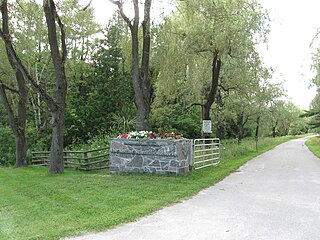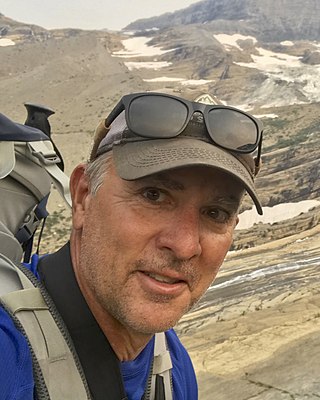Related Research Articles

Thomas Eugene Lovejoy III was an American ecologist who was President of the Amazon Biodiversity Center, a Senior Fellow at the United Nations Foundation and a university professor in the Environmental Science and Policy department at George Mason University. Lovejoy was the World Bank's chief biodiversity advisor and the lead specialist for environment for Latin America and the Caribbean as well as senior advisor to the president of the United Nations Foundation. In 2008, he also was the first Biodiversity Chair of the H. John Heinz III Center for Science, Economics and the Environment to 2013. Previously he served as president of the Heinz Center since May 2002. Lovejoy introduced the term biological diversity to the scientific community in 1980. He was a past chair of the Scientific Technical Advisory Panel (STAP) for the Global Environment Facility (GEF), the multibillion-dollar funding mechanism for developing countries in support of their obligations under international environmental conventions.

Kenneth Raymond Miller is an American cell biologist, molecular biologist, and Professor Emeritus of Biology at Brown University. Miller's primary research focus is the structure and function of cell membranes, especially chloroplast thylakoid membranes. Miller is a co-author of a major introductory college and high school biology textbook published by Prentice Hall since 1990.

Geerat J. Vermeij is a Dutch-born paleoecologist and evolutionary biologist in the Department of Earth and Planetary Sciences at the University of California, Davis. He studies marine molluscs, both as fossils and as living creatures, as well as influence creatures have on each other's evolutionary fates, alongside having worked on plants, crabs, extinction, biological invasions, and biogeography. He received a MacArthur Fellowship in 1992, and in 2000, was awarded the Daniel Giraud Elliot Medal from the National Academy of Sciences. He was also a fellow of the California Academy of Sciences in 1992 and was awarded the Fellows Medal from the California Academy of Sciences in 2017.
Simon Asher Levin is an American ecologist and the James S. McDonnell Distinguished University Professor in Ecology and Evolutionary Biology and the director of the Center for BioComplexity at Princeton University. He specializes in using mathematical modeling and empirical studies in the understanding of macroscopic patterns of ecosystems and biological diversities.

National Ecological Observatory Network (NEON) is a facility program operated by Battelle Memorial Institute and funded by the National Science Foundation. In full operation since 2019, NEON gathers and provides long-term, standardized data on ecological responses of the biosphere to changes in land use and climate, and on feedback with the geosphere, hydrosphere, and atmosphere. NEON is a continental-scale research platform for understanding how and why our ecosystems are changing.

The Koffler Scientific Reserve at Jokers Hill, is a biological field station belonging to and managed by the University of Toronto. It occupies roughly 348 hectares of old fields, wetlands, grasslands, and forest lands in King Township, on the western portion of the Oak Ridges Moraine and close to the town of Newmarket, Ontario, Canada. The site's ecosystems are home to many species of plants and animals.

Stephen Russell Carpenter is an American lake ecologist who focuses on lake eutrophication which is the over-enrichment of lake ecosystems leading to toxic blooms of micro-organisms and fish kills.

John Weaver Fitzpatrick is an American ornithologist primarily known for his research work on the South American avifauna and for the conservation of the Florida scrub jay. He is currently the Louis Agassiz Fuertes Director of the Cornell Lab of Ornithology in Ithaca, New York.

Anurag Agrawal is an American professor of ecology, evolutionary biology, and entomology who has written over a 150 peer-reviewed articles, which earned him an h-index of 92. He is the author of a popular science book, Monarchs and Milkweeds from Princeton University Press, and is currently the James Alfred Perkins Professor of Environmental Studies at Cornell University.
Jay Stauffer Jr. is a Distinguished Professor of Ichthyology at Pennsylvania State University.
Vincent Phillip Muñoz is an American political scientist. He is the Tocqueville Professor in the Department of Political Science and Concurrent Professor of Law at the University of Notre Dame. He is the author of two books on the principles of the American Founding focusing on religious liberty and the separation of church and state in the United States.

Jessica Hellmann is a Professor of Ecology and the director of the Institute on the Environment at the University of Minnesota. She is recognized as "one of the nation’s leading researchers on global change ecology and climate adaptation". Hellmann was one of the first to identify that living with climate change is "just as crucial to the future of humanity and Earth’s ecosystems as slowing and stopping greenhouse gas emissions". Her lab uses mathematical models, genomic techniques to identify the impact of climate change on ecology and evolution. Jessica Hellmann also has a spouse, Larry LaTarte (1974) and one daughter, Ada LaTarte (2007).
Erika S. Zavaleta is an American professor of ecology and evolutionary biology at the University of California, Santa Cruz. Zavaleta is recognized for her research focusing on topics including plant community ecology, conservation practices for terrestrial ecosystems, and impacts of community dynamics on ecosystem functions.

James Elser is an American ecologist and limnologist. He is Director & Bierman Professor of Ecology, Flathead Lake Biological Station, University of Montana and research professor, School of Life Sciences, Arizona State University. He is known for his work in ecological stoichiometry. In 2019, he was elected to the National Academy of Sciences.
John Norton Thompson is an American evolutionary biologist. He is Jean H. Langeheim Professor of Plant Ecology and Evolution at the University of California, Santa Cruz.
Jennifer L. Tank is an American ecologist who is the Galla Professor of Ecology of Streams and Rivers at the University of Notre Dame. Her research considers the biogeochemistry of streams, the influence of agriculture on land conservation, stream restoration and stream transport. She was elected Fellow of the American Association for the Advancement of Science in 2020.
Jessica Gurevitch is a plant ecologist known for meta-analysis in the fields of ecology and evolution.
Ann Kiku Sakai is a plant biologist at the University of California, Irvine known for her work on plant breeding and speciation. She is an elected fellow of the American Association for the Advancement of Science.
Nora J. Besansky is an American molecular biologist. She is the Martin J. Gillen Professor of Biological Sciences at the University of Notre Dame. In 2020, Besansky was elected a Member of the National Academy of Sciences for being an expert in the genomics of malaria vectors.
Crislyn D'Souza-Schorey is an American-Indian biologist. She is the Morris Pollard Professor and former Department Chair of Biological Sciences at the University of Notre Dame. D'Souza-Schorey researches how membrane trafficking impacts cell motility under normal conditions and in disease states.
References
- ↑ "Biologist David Lodge named director of Atkinson Center". Cornell Chronicle . 2015-08-20. Retrieved 2016-07-01.
- ↑ "Ecological Society of America announces 2016 fellows". Ecological Society of America. 2016-06-01. Retrieved 2016-07-01.
- ↑ "Science Watch; Bait as Bully: A Crayfish Takes Over Fish Lakes". The New York Times . 1989-06-27. Retrieved 2016-07-01.
- ↑ "Biological Hazards Ahead". The New York Times. 2003-06-19. Retrieved 2016-07-01.
- ↑ "Asian Carp in the Great Lakes? This Means War!". Time . 2010-02-09. Retrieved 2016-07-01.
- ↑ "Invasive Species, Coming Soon to a Habitat Near You". Time. 2014-07-17. Retrieved 2016-07-01.
- ↑ "Biologist David Lodge named Jefferson Science Fellow". University of Notre Dame. 2014-07-09. Retrieved 2016-07-01.